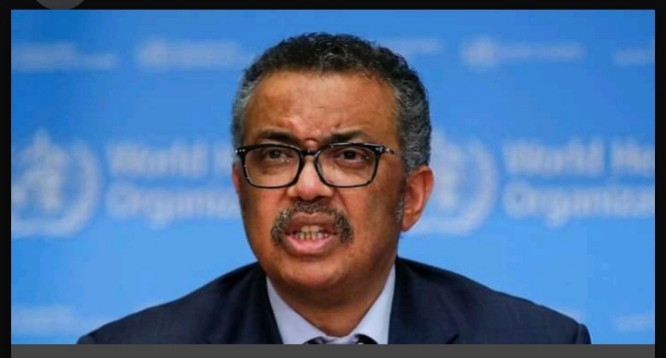The World Health Organization (WHO) has revealed that resource constraints are affecting its collective ability to effectively maintain surveillance and respond to the upsurge of monkeypox (mpox).
WHO Director-General, Dr Tedro Ghebreyesus made this known on Thursday during the IHR Emergency Committee meeting regarding the upsurge of mpox from 2024 to 5 June 2025.
The DG said despite making significant progress on the disease containment, the organization facing some challenges such as resource constraints, cuts in funding for HIV programmes which he said it hampering detection and control in key vulnerable groups. He said, “Capacities for risk communication are stretched and unevenly maintained. While disease trend in eastern DRC have been showing signs of decline over the last few months, the escalation of conflict and a worsening humanitarian situation risks undoing the gains we have made.
He said, “Capacities for risk communication are stretched and unevenly maintained. While disease trend in eastern DRC have been showing signs of decline over the last few months, the escalation of conflict and a worsening humanitarian situation risks undoing the gains we have made.
To sustain the achievements made so far, Dr Ghebreyesus said the organisation need to ensure adequate capacity to detect and respond to outbreaks. “We need strategic and targeted vaccination;
“And we need all partners and donors to support the global Mpox Global Strategic Preparedness and Response Plan, by providing the US$147 million needed. We must maintain collective focus, sense of urgency, and continue to build on the progress made”, he added. Giving update on the mpox cases, the DG disclosed that since beginning of 2024, more than 37 000 confirmed cases have been reported to WHO from 25 countries, including 125 deaths.
Giving update on the mpox cases, the DG disclosed that since beginning of 2024, more than 37 000 confirmed cases have been reported to WHO from 25 countries, including 125 deaths.
“The DRC accounts for 60% of confirmed cases and 40% of deaths, followed by Uganda, Burundi and Sierra Leone, which has been experiencing a surge in cases since the beginning of this year.
“In addition to confirmed cases, the DRC continues to report between 2000 and 3000 suspected cases each week.
“Since last meeting in February, seven additional countries have reported outbreaks for the first time: Albania, Ethiopia, Malawi, North Macedonia, South Sudan, the United Republic of Tanzania and Togo”.
Ghebreyesus stated that WHO has continued to work in affected countries, with the Africa CDC and other partners, under their shared continental response plan. “Together, we have expanded surveillance systems significantly;
“We have supported the development of laboratory capacity and genomic sequencing. In DRC alone, over 500 community health workers have been trained to support case detection, referral, risk communication and community engagement.
“We have significantly strengthened infection prevention, clinical care and WASH capacities across mpox-affected countries; And we continue to work closely with the Africa CDC, Gavi, CEPI and UNICEF under the mpox Access and Allocation Mechanism.
So far, 1.9 million vaccine doses have been allocated to 13 countries, and 11 countries have received doses. Japan and the United Arab Emirates delivered an additional 1.9 million doses bilaterally to affected countries. A total of 2.9 million doses are on the ground, and 724 000 doses have been administered”.












